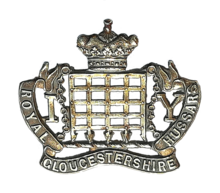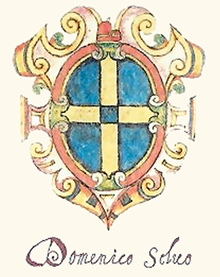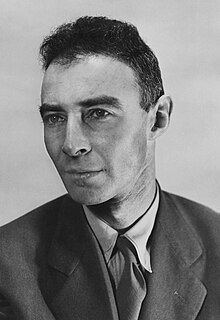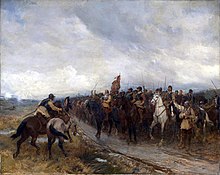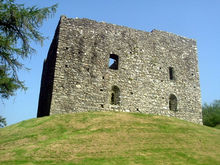
Back Portaal:Geskiedenis Afrikaans Portal:Gschicht ALS በር:ታሪክ Amharic Ingang:Stǣr ANG بوابة:التاريخ Arabic قيسارية:تاريخ ARY بوابة:التاريخ ARZ Портал:Тарих AV Tuveli:Izvopa AVK Portal:Tarix Azerbaijani
The History Portal
History (derived from Ancient Greek ἱστορία (historía) 'inquiry; knowledge acquired by investigation') is the systematic study and documentation of the human past.
The period of events before the invention of writing systems is considered prehistory. "History" is an umbrella term comprising past events as well as the memory, discovery, collection, organization, presentation, and interpretation of these events. Historians seek knowledge of the past using historical sources such as written documents, oral accounts, art and material artifacts, and ecological markers. History is incomplete and still has debatable mysteries.
History is an academic discipline which uses a narrative to describe, examine, question, and analyze past events, and investigate their patterns of cause and effect. Historians debate which narrative best explains an event, as well as the significance of different causes and effects. Historians debate the nature of history as an end in itself, and its usefulness in giving perspective on the problems of the present.
Stories common to a particular culture, but not supported by external sources (such as the tales surrounding King Arthur), are usually classified as cultural heritage or legends. History differs from myth in that it is supported by verifiable evidence. However, ancient cultural influences have helped create variant interpretations of the nature of history, which have evolved over the centuries and continue to change today. The modern study of history is wide-ranging, and includes the study of specific regions and certain topical or thematic elements of historical investigation. History is taught as a part of primary and secondary education, and the academic study of history is a major discipline in universities.
Herodotus, a 5th-century BC Greek historian, is often considered the "father of history", as one of the first historians in the Western tradition, though he has been criticized as the "father of lies". Along with his contemporary Thucydides, he helped form the foundations for the modern study of past events and societies. Their works continue to be read today, and the gap between the culture-focused Herodotus and the military-focused Thucydides remains a point of contention or approach in modern historical writing. In East Asia, a state chronicle, the Spring and Autumn Annals, was reputed to date from as early as 722 BC, though only 2nd-century BC texts have survived. (Full article...)
Featured picture
Did you know (auto generated)

- ... that the titular character of Verdi's Nabucco, the opera that established his fame, is a combination of three historic rulers?
- ... that a reviewer called Black Krrsantan one of "the scariest characters in Star Wars history"?
- ... that at the time, the Fountain Fire was the third-most destructive wildfire in California's recorded history?
- ... that the market hall of Niort opened in 1871 and has been listed as a historic monument since 1987?
- ... that in the first Romanian universal chronicle, Mihail Moxa shows "the God of the Old and New Testaments baptizing His stars with the names of Olympian deities"?
- ... that an exhibition hall for the 1939 New York World's Fair later hosted athletic events at a historically Black university in Virginia?
Walter de Coventre (died 1371 or 1372) was a 14th-century Scottish ecclesiastic. There is no direct evidence of his birthdate, his family, or his family's origin, although he may have come from the region around Abernethy (in modern-day Perth and Kinross), where a family with the name de Coventre is known to have lived. Walter appeared in the records for the first time in the 1330s, as a student at the University of Paris. From there he went on to the University of Orléans, initially as a student before becoming a lecturer there. He studied the arts, civil law and canon law, and was awarded many university degrees, including two doctorates. His studies were paid for, at least partially, by his benefices in Scotland. Despite holding perhaps more than five benefices at one stage, he did not return to Scotland until the late 1350s.
Following his return to Scotland, Walter soon became Dean of Aberdeen Cathedral. From there he became engaged in high-level ecclesiastical affairs with the Scottish church and political affairs with the Earl of Mar. Sometime before June 1361, the cathedral chapter of Dunblane elected him Bishop of Dunblane. He went to France to secure confirmation from the Pope at Avignon, who authorised his consecration. Walter was bishop for 10 years after returning home to Scotland. Records of his episcopate are thin, but there are enough to allow a modest reconstruction of his activities: he presided over legal disputes, issued a dispensation for an important irregular marriage, attended parliaments, and acted as an envoy of the Scottish crown in England. He died in either 1371 or 1372. (Full article...)On this day
May 17: International Day Against Homophobia, Biphobia and Transphobia; Sanja Matsuri begins in Tokyo, Japan (2024)
- 1590 – Anne of Denmark (pictured) was crowned the queen consort of Scotland in a ceremony at Holyrood Abbey in Edinburgh.
- 1863 – American Civil War: At the Battle of Big Black River Bridge in Mississippi, Union forces under John A. McClernand defeated a Confederate rearguard and captured around 1,700 men.
- 1900 – The first copies of the children's novel The Wonderful Wizard of Oz by L. Frank Baum were printed.
- 1954 – The U.S. Supreme Court ruled in the landmark case Brown v. Board of Education, outlawing racial segregation in public schools because "separate educational facilities are inherently unequal" and therefore unconstitutional.
- 1987 – An Iraqi jet fired two Exocet missiles at the American frigate USS Stark, killing 37 personnel and injuring 21 others.
- Caroline of Brunswick (b. 1768)
- Little Gerhard (b. 1934)
- Maggie Laubser (d. 1973)
Selected quote
Truth alone will endure, all the rest will be swept away before the tide of time. I must continue to bear testimony to truth even if I am forsaken by all. Mine may today be a voice in the wilderness, but it will be heard when all other voices are silenced, if it is the voice of Truth.
— Gandhi, Indian political and spiritual leader
Related portals
More Did you know...
- ... that, when Ghenadie Petrescu (pictured) was ousted from his post of Metropolitan-Primate, Romania experienced protests and riots?
- ... that the British destroyer HMS Highlander escorted Convoy SC 122 through the largest convoy battle of World War II in March 1943 and was unsuccessfully attacked by U-441 and U-608?
- ... that in 1911, John Gaunt's second biplane nearly crashed because a bystander bent the aircraft's elevator before a flight?
- ... that Themistokli Gërmenji, an Albanian nationalist, received the French Croix de Guerre in November 1917, but was executed shortly thereafter by a French military court?
- ... that fish-knives inscribed with Elokeshi's name were sold after her husband decapitated her with a fish-knife following her adulterous affair with a Hindu head-priest?
- ... that the ancient Roman dancer Galeria Copiola reached the age of 104?
- ... that to escape burning at the 1393 Bal des Ardents Charles VI of France huddled under the gown of the Duchesse de Berry, while a lord leaped into a wine vat?
- ... that a junior officer on the USS Ancon refused King George VI entry to the ship's intelligence centre because no one told him the King "was a Bigot"?
Topics
Categories

History • By period • By region • By topic • By ethnic group • Historiography • Archaeology • Books • Maps • Images • Magazines • Organizations • Fictional • Museums • Pseudohistory • Stubs • Timelines • Chronology • People • Wikipedia historians
WikiProjects
![]() WikiProject History •
Ancient Near East • Australian History • Classical Greece and Rome • Dacia • Former countries • History of Canada • Chinese history • European history • Heraldry and vexillology • Indian history • Jewish history • Medieval Scotland • Mesoamerica • Military history • Middle Ages • History of Science
WikiProject History •
Ancient Near East • Australian History • Classical Greece and Rome • Dacia • Former countries • History of Canada • Chinese history • European history • Heraldry and vexillology • Indian history • Jewish history • Medieval Scotland • Mesoamerica • Military history • Middle Ages • History of Science
WikiProject Time • Days of the Year • Years
WikiProject Biography • Composers • Political figures • Saints • United States Presidents
Things you can do
 |
Here are some tasks awaiting attention:
|
Associated Wikimedia
The following Wikimedia Foundation sister projects provide more on this subject:
-
Commons
Free media repository -
Wikibooks
Free textbooks and manuals -
Wikidata
Free knowledge base -
Wikinews
Free-content news -
Wikiquote
Collection of quotations -
Wikisource
Free-content library -
Wikiversity
Free learning tools -
Wiktionary
Dictionary and thesaurus
© MMXXIII Rich X Search. We shall prevail. All rights reserved. Rich X Search

![Image 1 Radoje Pajović (14 April 1934 – 2 June 2019) was a Yugoslav and Montenegrin historian who worked at the Institute of History at the University of Montenegro for forty years. He has been dubbed "the most prominent Montenegrin historian" of events in Montenegro during World War II by the Montenegrin historian Srđa Pavlović, and Professor Kenneth Morrison, author of the 2009 book Montenegro: A Modern History, asserts that Pajović is one of the most prominent Montenegrin historians in general. Pajović received the "13 July Award" from the National Assembly of Montenegro and the "19 December Award" from the city of Titograd, the capital of Montenegro. His most notable works were Kontrarevolucija u Crnoj Gori: četnički i federalistički pokret 1941–1945 [Counterrevolution in Montenegro: The Chetnik and Federalist Movements 1941–1945], published in 1977; Pavle Đurišić: kontroverzni četnički vojvoda [Pavle Đurišić: Controversial Chetnik Commander], first published in 1987 and then supplemented and expanded and re-published in 2005; and Crna Gora kroz istoriju [Montenegro Through History], also published in 2005. He was the author or co-author of twelve books and the editor of more than twenty, and he published around one hundred articles and other contributions. In the 1990s, some historians attempted to rehabilitate the World War II Chetniks who collaborated with the Axis powers; Pajović was among the historians who opposed this politically motivated historical revisionism. Towards the end of his academic career and in retirement, Pajović was a vocal advocate for Montenegrin independence and identity. (Full article...)](http://upload.wikimedia.org/wikipedia/en/d/d2/Blank.png)
